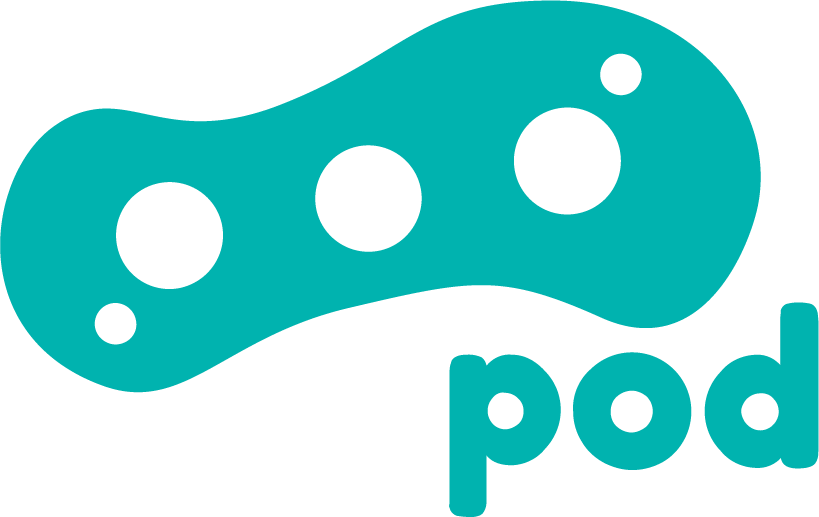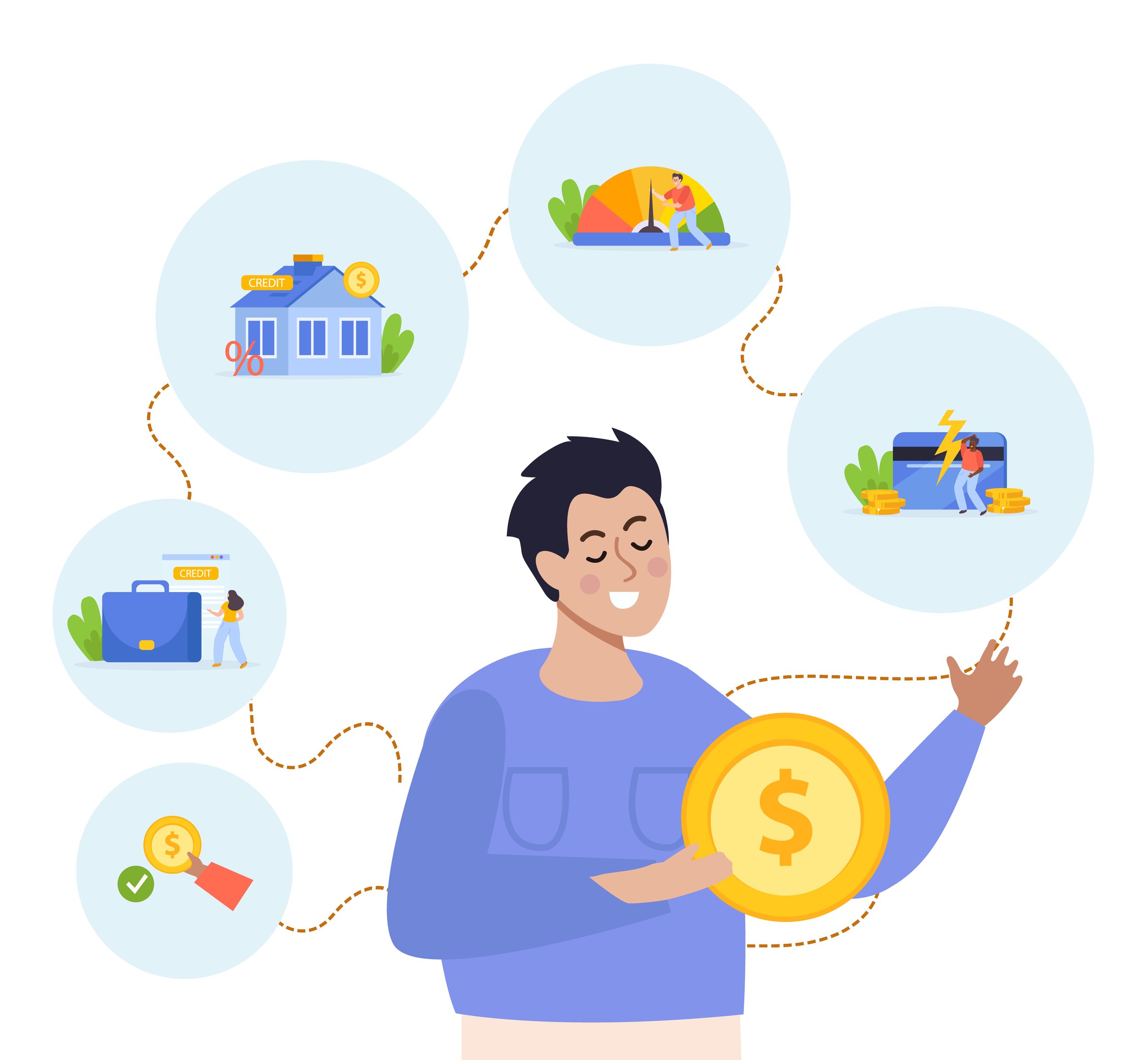How Do I Get a Personal Loan Financing with Bad or No Credit History?
Securing a loan is often a critical step in various life situations, whether you're looking to invest in your education, purchase a new car, or overcome unexpected financial challenges.
When it comes to personal financing, your credit history often plays a pivotal role. But what if your credit is far from perfect? If you're wondering, "How can I get a loan with bad credit?" or "How do I get a loan with no credit?" you're in the right place.
This article unveils strategies and insights to help you secure loans even in the face of a challenging credit history.
Understanding the Challenge and Significance of Credit History
A credit score is a numerical representation of your creditworthiness and plays a significant role in your loan financing applications. Hence, your credit history is like your financial report card. It reflects your past borrowing and payment behavior. Lenders scrutinize it to evaluate your creditworthiness. A good credit score can open doors to favorable personal loan financing terms, while a bad credit history can seem like a roadblock.
Traditional lenders, such as banks, are often wary of lending to individuals with bad credit or no credit history. To them, a bad credit history can be a result of late payments, defaults, or other financial missteps, whereas having no credit history often means you have yet to establish a credit record. This results in denied loan financing applications and missed opportunities for those in need of financial assistance.
Source: CTOS
Loan Options for Individuals with Bad or No Credit
Personal loan financing is a versatile financial tool that can help you address various needs, from debt consolidation, and unplanned medical expenses, to home improvement. In times of financial urgency, waiting for your credit score to improve is not an option.
Securing a loan financing with a bad or no credit history is not impossible. There are various options available to you. Secured loans, which involve providing collateral to back the personal financing, can be a viable choice. Alternatively, you can consider having a creditworthy co-signer (guarantor) join your application. Online lenders and alternative lending options also cater to individuals in your situation.
Getting financing without a credit history is also achievable when lenders consider alternative data to evaluate a borrower's risk. For instance, examining bank account activity and payment history for rent, utilities, and other expenses.
However, it's crucial to thoroughly review the personal loan financing’s terms and conditions, as they may entail higher interest rates and additional fees, such as late payment fees, prepayment fees, and origination fees. Borrowers might also encounter less favorable terms, such as shorter repayment periods, aimed at reducing lenders' exposure to the risk associated with individuals having bad or no credit.
Source: Freepik
How do I get a Personal Loan Financing
with Bad or No Credit in Malaysia?
1. Assess Your Current Financial Situation
Getting a financing loan, especially with a less-than-perfect credit history, requires meticulous planning. Start by assessing your current financial situation. This will help you set clear objectives and establish a realistic budget tailored to your specific loan requirements. We recommend checking your credit report through CTOS to get insight on the cause of your poor credit score and how it can be addressed.
Traditional lenders like banks and credit unions may have stringent credit requirements, but they can still be approached with the right strategy. Prepare a compelling application that showcases your financial stability and reliability. Be ready to negotiate for better terms.
2. Navigating Traditional Lenders
If you have completely paid off your property or have owned it for more than a decade, you can choose to refinance your home. This refinancing option enables you to access a lump sum of money, which can be used to pay off your existing unfavorable credit obligations and consolidate your debts within your mortgage.
However, for those who don't own a house and are dealing with poor credit, an alternative option to consider is engaging in a property cash-back arrangement. In this scenario, you purchase a property, and the seller reimburses a portion of the purchase price, which you can then allocate toward settling your poor credit debts.
3. Utilise Property Equity
If conventional banks are hesitant to offer you a personal loan on account of your low credit score, explore alternative lending sources like licensed online lending platforms, peer-to-peer lending platforms, or retail banking. Typically, they have more flexible lending standards and are more open to accommodating individuals with poor credit scores.
4. Explore Alternative Lending Options
5. Craft a Comprehensive Repayment Strategy
When you approach lenders seeking a personal financing despite having a poor credit history, it's essential to illustrate your commitment to repayment. One effective approach is to develop an intricate budget that meticulously outlines your income, expenses, and the specific allocation of funds toward repaying the financing loan.
Additionally, emphasizing any positive enhancements in your financial circumstances to augment your capacity to meet your financial commitments can be advantageous. This includes highlighting your assets and providing a strong explanation of your credit history.
Source: Freepik
How Do I Improve My Credit Score?
Improving your credit score not only enhances your chance of securing a personal financing but also opens up doors for better financial opportunities. Here’s what you can do:
Source: Freepik
1. Pay Bills on Time
The most effective but gradual approach to securing a personal loan financing with a less-than-ideal credit history is to consistently exhibit responsible financial conduct. Embark on this journey by ensuring timely payments of your bills, bank instalments, and other credit obligations each month over an extended period, ideally 12 months. This demonstrates to lenders that you are evolving into a more reliable and trustworthy borrower, all the while steadily enhancing your creditworthiness.
Credit utilization, often referred to as the debt-to-credit ratio, represents the proportion of your current total debt in relation to your available total credit. Maintaining high credit utilization is viewed as a sign of excessive reliance on credit and can have an adverse impact on your credit score.
Typically, it's advisable to aim for a credit utilization of 30% or less. To achieve this, it's essential to make consistent payments to reduce your credit utilization, demonstrating to lenders that you have the capability to effectively manage and repay your financial obligations. Additionally, to keep your balances in proportion to your credit limit, it's wise to refrain from maxing out your credit cards.
2. Minimise Your Credit Utilisation
3. Refrain From Unnecessary New Account Openings or Credit Applications
The act of opening several credit accounts in a short period of time can have an adverse impact on your credit rating. Rather than doing so, it is advisable to retain your existing accounts that have a favorable track record and keep them active. These accounts will make a positive contribution to your credit score, serving as evidence of your responsible credit management.
Furthermore, it's advisable to refrain from making simultaneous applications for numerous loan financing or credit programs, as this can have a detrimental impact on your credit rating. This is due to the fact that each time you submit a financing application, the lender conducts a rigorous examination of your credit report, which can lead to a reduction in your credit score.
How Pod App Can Help You with Our Shariah-Compliant Micro-financing
If you’re wondering how to borrow money from a money management app, we’ll be able to assist.
Pod App is a money lending app that can offer Shariah-compliant micro-financing up to RM10,000 with a low-processing fee and help you raise your credit score at the same time. Not only that, it is an app for money management and financial planning that helps you save money while rewarding you along the way!
Download our app on your Android and iPhone now.
Known as Pod Savings on both App & Google Stores.-
Personal Loan: A general-purpose loan that individuals can use for various financial needs. It's typically unsecured, meaning it doesn't require collateral, and the borrower repays it in fixed instalments.
Debt Consolidation Loan: This loan is used to combine multiple debts, such as credit card balances or other loans, into a single, more manageable loan with a lower interest rate, making it easier to repay.
Mortgage: A long-term loan used to purchase a home or real estate. The property itself serves as collateral, and the loan is repaid over several years.
Home Equity Loan: Allows homeowners to borrow against the equity they've built in their homes. It can be used for various purposes and is secured by the home's value.
Student Loan: Designed to finance education expenses, such as tuition, books, and living costs. They often have favourable terms for students and can be government or privately funded.
Hire Purchase: This loan is used to purchase vehicles. The car itself serves as collateral, and borrowers repay the loan over a specified term.
Small Business Loan: Tailored for small businesses to cover various expenses, including startup costs, expansion, or working capital. They come in various forms, such as term loans or lines of credit.
Credit Builder Loan: This is a financial product designed to help individuals build or repair their credit history. Borrowers make regular payments, and once the loan is repaid, it can improve their credit score.
Payday Loan: A short-term, high-interest loan typically used to cover unexpected expenses until the borrower's next payday. These loans often have high fees and are considered a last resort due to their cost.
-
Some loans that are relatively simple to secure approval for comprise payday loans, loans without credit checks, and loans from pawnshops. Personal loans that come with virtually no approval prerequisites generally come with the highest interest rates and loan charges.
-
Good debts, such as mortgages, student loans, and business loans, propel you closer to your objectives. Unfavorable debts, like credit cards, loan shark deals, and loans used for assets that lose value, push you further from your goals. When it comes to debt, maintaining a balanced approach is essential, as even beneficial debt can take a negative turn if overused.
-
Item descripLenders consider several factors when assessing credit risk:
Likelihood of Default: This metric assesses the probability that a borrower will be unable to make scheduled payments on a loan or credit obligation. It is a measure of how likely it is that the borrower will default on their financial commitments, which indicates higher credit risk.
Extent of Loss in Case of Default: This measure quantifies the potential financial loss that a lender may incur if a borrower defaults on their loan. It considers the difference between the outstanding loan balance and the value of any collateral or assets that can be used to recover the debt.
Exposure at the Time of Default: Exposure at default calculates the total amount a lender is exposed to when a borrower defaults. It includes the outstanding loan amount, interest, and any other costs associated with the loan. This metric helps lenders understand their potential losses in the event of a borrower's default.tion
-
In most cases, lacking a credit history is more advantageous than having an unfavorable credit history, even though both situations can pose challenges. Individuals without a credit history might encounter difficulties when seeking approval for premium credit cards. Conversely, those with poor credit may face obstacles when applying for credit and in various other situations.






